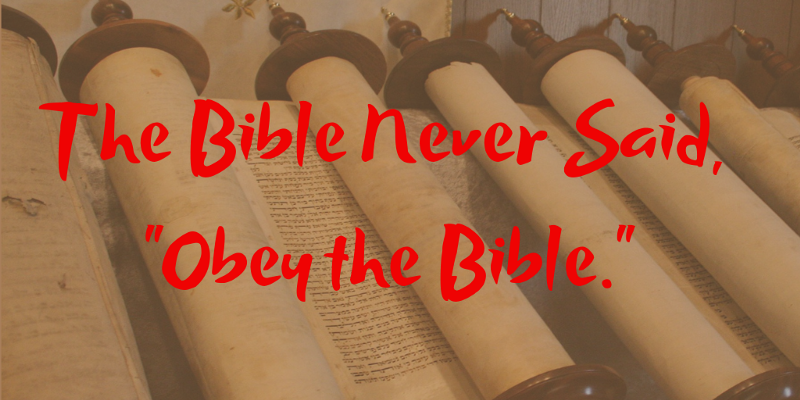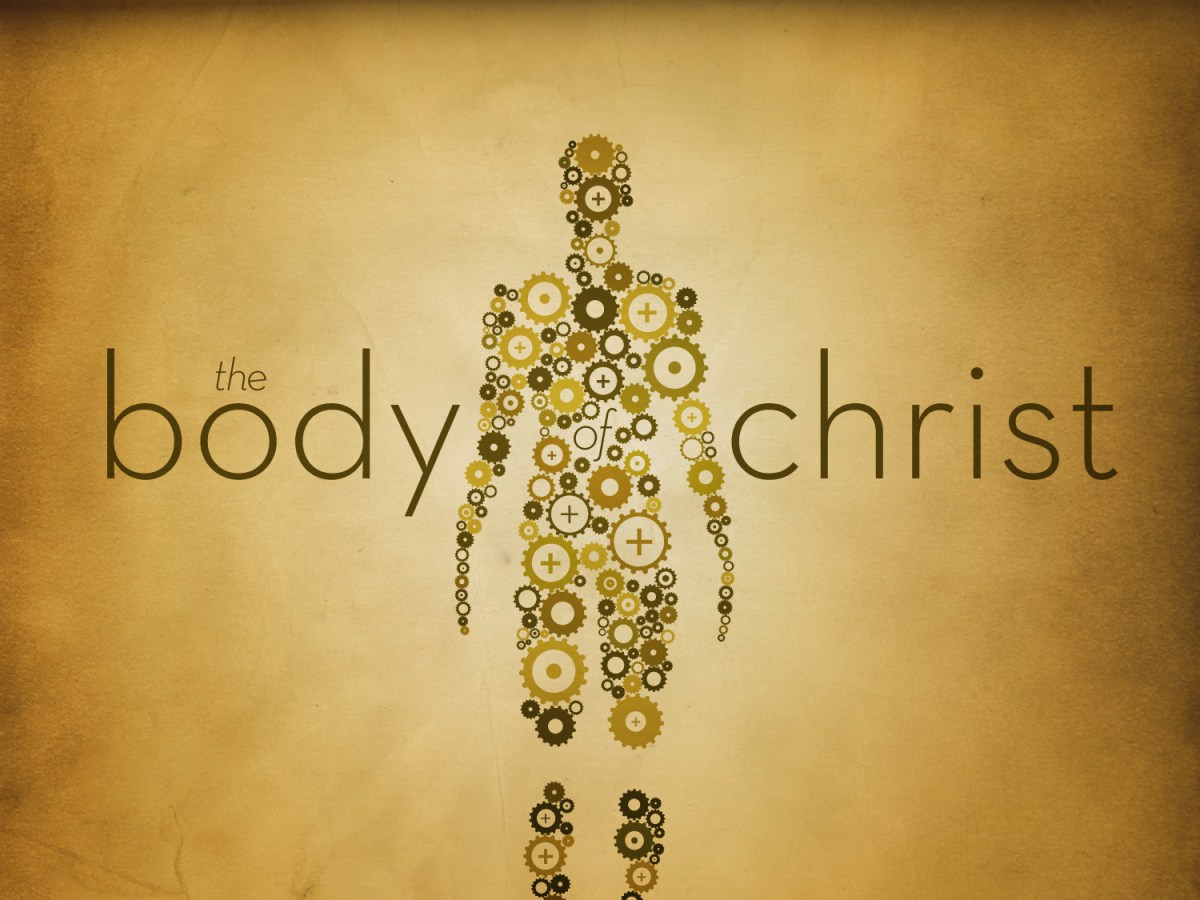At a hearing which could also be described as a near death experience, Martin Luther stood before representatives of God and of men to give an account. Before him were piled copies of his writings made abundant by Gutenberg’s good work. Within those documents smoldered the embers of revolution threatening to ignite a continent drained dry by papal greed. To suppress the coming conflagration, the church offered Luther a choice, face a literal flame or utter a simple word— “revoco,” in English, “I recant.”
Surely quivering, Luther’s voice rang out,
I will answer without horns and without teeth. Unless I am convicted by Scripture and plain reason — I do not accept the authority of popes and councils, for they have contradicted each other — my conscience is captive to the Word of God, I cannot and I will not recant anything, for to go against conscience is neither right nor safe. God help me. Amen.
Those words marked a watershed in Western history. Though many factors had led up to their utterance, they stand (at least for Protestants) as a clear transfer of ultimate authority from church hierarchy to the Bible.
Also, since that time we have fractured into thousands of denominations sects, cults, and subgroups. I think five hundred years is a long enough time to conclude that people will never understand the Bible alike. Actually, it’s more like two thousand.
Christians lament the existence of religions like Islam and Mormonism, but those religions emerged to address rampant division between people who claimed to obey the Bible.
Between the fifth and seventh centuries, the Roman church hadn’t yet seized the absolute power she enjoyed during Luther’s day. In the early seventh century, the religious landscape on the Arabian peninsula was littered with pluralism and syncretism. Into that confusing religious circus, the Qur’an spoke:
From those, too, who call themselves Christians, We did take a covenant, but they forgot a good part of the message that was sent them: so we estranged them, with enmity and hatred between the one and the other, to the day of judgment. And soon will Allah show them what it is they have done. O people of the Book! There hath come to you our Messenger, revealing to you much that ye used to hide in the Book, and passing over much (that is now unnecessary). There hath come to you from Allah a (new) light and a perspicuous Book,(Surah 5:14–15, Al-Qur’an [English Edition] Complete and Unabridged. Islamic Studies Press. Kindle Edition.)
Twelve hundred years later, a man born of a new world would claim an eerily similar status as divinely ordained arbiter. In reflecting back on his call from God, Joseph Smith wrote:
My object in going to inquire of the Lord was to know which of all the sects was right, that I might know which to join. No sooner, therefore, did I get possession of myself, so as to be able to speak, than I asked the Personages who stood above me in the light, which of all the sects was right (for at this time it had never entered into my heart that all were wrong) and which I should join.
I was answered that I must join none of them, for they were all wrong; and the Personage who addressed me said that all their creeds were an abomination in his sight; that those professors were all corrupt; that: “they draw near to me with their lips, but their hearts are far from me, they teach for doctrines the commandments of men, having a form of Godliness, but they deny the power thereof.” (Pearl of Great Price, History of Joseph Smith verses 18,19)
Muslims and Mormons both hold that God revealed his will through their inspired text given through his ultimate prophet to clarify revelation, given in the Bible, but subsequently mishandled by those to whom it was given. It’s not hard to trace their line of thought from a belief that God gave the twenty-seven books which we call “The New Testament” to serve as Torah 2.0. If we needed a 2.0, then why not a 3.0 or 4.0?
Of course, no text no matter how precise or correct can possibly produce anything but division. Islam split in two at Muhammad’s death. Since then, multiple schools of Islam have proliferated over disparate interpretations of the Qur’an and Hadiths. The framers of Mormonism took leveraged their latter day status by correcting previous errors. They accomplished unity (for the most part) by reversing the Reformation and returning ultimate authority to the church.
Those of us who’ve not been called by a supernatural being to birth a new religion soldier on through glaring inconsistencies hoping somehow to credibly witness to Christ. He prayed that we’d be one so that the world would know God sent him. From the looks of things, that prayer still awaits an answer, and the world is still unsure about Christ. I don’t think it’s because God has failed. I think it’s partially because we’ve been divided for so long that we think it’s normal.
My fellow members at the Church of Christ used to say that if two people disagree on the interpretation of scripture one of them can be right and the other wrong or they could both be wrong, but they can’t both be right. Translation: “We’re the only ones who are right.” While I no longer sing that disharmonious tune, the logic still holds water. Out of hundreds of Christian denominations, either just one of them is right or none of them are. Most people would agree that none of them are, but everyone still claims to obey the Bible.
Let’s face it, the Bible is a big, complicated book written thousands of years ago over hundreds of years by people with their own ideas, problems, and interests. It is composed of multiple genres and written in archaic languages. None of the words were written to anyone living in the 21st century in the New World. To suggest that an average, uninformed American could start reading at Genesis 1:1 and gain any sort of cohesive insight into the will of God borders on delusion. That may be a difficult pill to swallow, but the existence of Bible colleges, seminaries, Sunday schools, or even Sunday sermons for that matter, testify to the truth of what I’m saying. Even the Gideons hand out primarily New Testaments rather than the whole enchilada.
Because the Bible is so vast and diverse, it’s message easily falls prey to the whim of those who would use it to legitimize their own wants or their claim to power. For instance, most pastors would readily explain that under Christ we no longer follow the law of Moses, but most churches have retained the practice of tithing. The New Testament does not enjoin tithing on believers in Christ not even once. It does speak of the early disciples collecting money, but those were special circumstances and almost always for the sake of alleviating poverty among their members or supporting fulltime ministers of the gospel. How could people who are trained and commissioned to expound the meaning of the Bible perpetuate such a glaring misinterpretation of it?
I have a hypothesis as to why. Institutions need predictable income to operate. When the church becomes an institution, it gladly trades grace-based generosity for an obligatory ten percent. Now, we just need some Bible verses to get everyone on board. Oh look, it’s Malachi 3:8–12. How convenient!
And then, we have the audacity to call the prosperity gospel a heresy! (Go read the passage in Malachi to see what I mean.)
Church leaders aren’t the only ones to blame; individual Christians have their own agenda as well. We might acknowledge that the New Testament doesn’t command tithing, but then go on to ignore passages which speak of divesting ourselves of material wealth and giving sacrificially to help our spiritual brothers and sisters in times of distress. I wonder whether many Christians haven’t been complicit in the tithing deception just because 10% is cheaper than generosity inspired by the love of Christ.
Tragically, our self-deception doesn’t fool those looking at us from outside of our fishbowl. When we consistently, persistently, and insistently mishandle the very book which we hold up as our standard, we deceive only ourselves and repel our sincere critics. No wonder unbelievers see Christianity as just a way for people to make themselves feel better.
We will discover and demonstrate that it is far more when we stop claiming to obey the Bible.
Please don’t get me wrong, I’m not discounting the Bible. I believe it to be inspired. In John 6, Jesus said that his words are spirit and they are life. The writer of Hebrews famously declared, “For the word of God is alive and active.” These words electrify me, but none of them indicate that we’re supposed to rifle through the Bible for rules on how to live. For all the wonderful things that the Bible says about itself, it tends to take itself far less seriously than we want it to.


